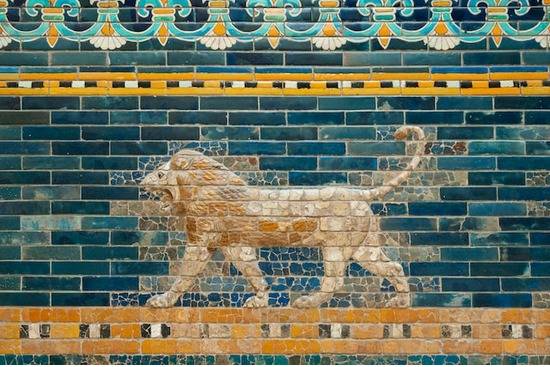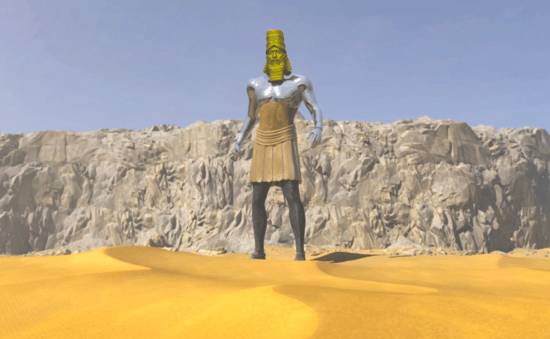Major Fulfilled Bible Prophecies You Should Know About
Prophets seem like something from novels or movies.
The predictions they make couldn’t actually happen, could they? After all, nobody can tell the future!
At least humans can’t. Right?
Yet, in the Bible, prophecies happened just the way the prophets said they would. These prophets, who had a special relationship with God, received these messages from Him—sometimes through directly hearing His voice or sometimes through visions or dreams.
So, how do we know these prophecies came to pass?
Some biblical prophecies are backed by historical evidence, while other smaller ones are fulfilled later in the Bible. Seeing how these prophecies have unfolded is an enormous reminder of God’s power. It gives us confidence that He will fulfill all the other promises and prophecies that have yet to occur.
So let’s take a look at some of these fulfilled prophecies. We’ll cover three major categories:
Then, we’ll finish off by looking at why Bible prophecies are still important today.
Ancient kingdom prophecies

Photo by Roland Fényes on Unsplash
Ancient kingdom prophecies are prophecies that God gave to help people understand the rise and fall of nations throughout history.
Though the concept of prophecy is a little more strange in modern times, the idea wasn’t all that foreign to the ancient world. Many “prophets” foretold delight and disasters for nations. Kings often had magicians and wise men to tell them the future, too (Genesis 41:8; Daniel 2:2).
Others consulted oracles—people or things believed to hold knowledge from the gods.
The difference between these “prophets” and biblical prophets was the trustworthiness of the messages. The false prophets didn’t really know what would happen, and often their predictions were more like educated guesses. We see the limitations of their abilities in the Daniel 2 story of the wise men who were called by King Nebuchadnezzar and failed to tell him the dream he’d had.
On the other hand, God and His prophets have a consistent track record of fulfilled prophecies, which we can confirm if we turn back the pages of history.
Here are a few prophecies concerning nations of the ancient world.
Israel and Edom

Photo by Brett Jordan
The book of Genesis in the Old Testament tells the story of twin brothers named Jacob and Esau. Before the twins were born, God gave their mother a key prophecy:
“Two nations are in your womb, two peoples shall be separated from your body; one people shall be stronger than the other, and the older shall serve the younger” (Genesis 25:23, NKJV).
This indeed happened.
The oldest, Esau, and his descendants became the nation of Edom, while Jacob and his descendants became the nation of Israel.
As the Israelites left Egypt, the nation of Edom made life difficult for them through wars, raids, and other petty actions (Number 20:18). Eventually, though, King David of Israel conquered them (2 Samuel 8:14) and brought them into subservience to Israel, fulfilling the prophecy.
However, they later rebelled against Israel, causing God to pronounce judgment on them. This judgment is found in Jeremiah 49. Here’s a part of what it says:
“Edom shall become a horror. Everyone who passes by it will be horrified and will hiss because of all its disasters…. no man shall dwell there, no man shall sojourn in her” (Jeremiah 49:17-18, ESV).
The Book of Obadiah also lists the judgments of God against Edom.
Later, Edom was conquered by the Nabateans around the time Greece rose to power.1 In Roman times, they resurfaced as the Idumaeans when they sided with Rome during the destruction of Jerusalem in A.D. 70.2
But after that, we no longer find them in historical records.
The destruction of Jerusalem

Photo by Svetlana B
This event was prophesied twice—at two different times in history.
The first time occurs in the Old Testament. Jeremiah delivered this message from God to the people of Judah:
“‘Behold, I will send and take all the families of the north,’ says the Lord, ‘and Nebuchadnezzar the king of Babylon, My servant, and will bring them against this land…and will utterly destroy them, and make them an astonishment, a hissing, and perpetual desolations… [T]hese nations shall serve the king of Babylon seventy years’” (Jeremiah 25:9, 11, NKJV).
True to the prophecy, King Nebuchadnezzar of Babylon raided Judah three times before capturing Jerusalem (Daniel 1:1), destroying the temple (2 Kings 25:9), and hauling the majority of the Jews off to Babylon.3
The Jews remained in Babylon until they were freed during the Medo-Persian rule (Ezra 1:1-4).4
Jerusalem’s second destruction was prophesied by Jesus Christ in the New Testament. Showing His disciples the temple, He told them,
“Do you not see all these things? Assuredly, I say to you, not one stone shall be left here upon another, that shall not be thrown down” (Matthew 24:2, NKJV).
He went on to tell them of other atrocities that would happen, including death, war, and persecution. While this prophecy applies to end-time events, it also directly refers to the Jews in Jerusalem.
A.D. 70 brought the fulfillment of this prophecy. The Romans besieged Jerusalem until they broke down the Jews’ defenses and killed many of them.5 They also destroyed the temple so completely that nothing was left.
Cyrus and the rebuilding of the temple

Photo by Tim Wildsmith on Unsplash
Coinciding with the prophecy of the first destruction of Jerusalem is Isaiah’s prophecy of the king who would release the Jewish captives, allowing them to rebuild Jerusalem and the temple:
“Who says of Cyrus, ‘He is My shepherd, and he shall perform all My pleasure, saying to Jerusalem, “You shall be built,” and to the temple, “Your foundation shall be laid”’” (Isaiah 44:28, NKJV).
Later, Isaiah relayed that God would direct Cyrus’ actions, and the king would build Jerusalem and let the Israelites return for free (Isaiah 45:13).
Over 200 years later, a king named Cyrus did come to power and defeat Babylon. The discovery of the Cyrus Cylinder in 1879 helped confirm that Cyrus freed all the Babylonian captives and even saw himself as God’s tool in allowing the Jews to rebuild the temple.6
Josephus, the Jewish historian, records the following about this historical event in Antiquities:
“Accordingly, when Cyrus read this [Isaiah’s words], and admired the Divine power, an earnest desire and ambition seized upon him to fulfill what was so written.”7
Babylon’s future

Photo by Corbin Mathias on Unsplash
God had a lot to say about Babylon, the first kingdom to conquer Judah. This kingdom’s poor treatment of the Israelite captives was one of the offenses that would eventually result in it receiving God’s judgments.
Babylon’s immediate destruction was foretold by mysterious writing on the wall during a party put on by the king (recorded in Daniel 5). The king called the prophet Daniel in to interpret it:
“This is the interpretation of each word. Mene: God has numbered your kingdom, and finished it; Tekel: You have been weighed in the balances, and found wanting; Peres: Your kingdom has been divided, and given to the Medes and Persians” (Daniel 5:26-27, NKJV).
That very night, the Medo-Persians invaded Babylon, murdering the king and taking over Babylon (Daniel 5:30).
Greek historian Herodotus later recounted this capture by Medo-Persia, noting that Cyrus got into the impregnable Babylon by diverting the Euphrates River, which ran through the city.8
But that wasn’t all God had to say about Babylon. Jeremiah prophesied that Babylon would one day be “desolate forever” and “a dry land and a wilderness” (Jeremiah 51:26, 43, NKJV).
Today, only dust, wind, and ruins inhabit the spot where Babylon stood, about 50 miles south of Baghdad, Iraq. Saddam Hussein tried to rebuild it in the 1970s,9 but even this failed, showing how accurately Jeremiah’s prophecy happened.
Nebuchadnezzar’s statue
 In Daniel 2, the Babylonian king Nebuchadnezzar received a dream from God that included an important prophecy about successive world empires.
In Daniel 2, the Babylonian king Nebuchadnezzar received a dream from God that included an important prophecy about successive world empires.
The dream was about a statue made of different kinds of metals (Daniel 2:31-35):
- A head of gold
- Chest and arms of silver
- Belly and thighs of bronze
- Legs of iron
- Feet of iron and clay mixed
God gave Daniel the interpretation of the king’s dream, telling him that the different metals represented kingdoms, each succeeding the one before it (Daniel 2:39-44).
The first metal, gold, represented Babylon (Daniel 2:38). Babylon was the most powerful kingdom in the known world at that time.
Medo-Persia, the next world power, conquered Babylon in 539 B.C.10
After Medo-Persia came Greece with Alexander the Great as ruler.
Rome conquered Greece in the 100s B.C.11
When Rome divided and finally crumbled in the early centuries after Christ, several smaller countries rose from it in Europe, including France, Italy, Germany, and England. This fulfilled the feet.
Besides prophetic revelations about kingdoms, the Bible is filled with Messianic prophecies that Jesus fulfilled. We’ll cover those next.
Messianic prophecies
Ever since sin entered the world, God’s people knew someone would deliver them from it someday. After Adam and Eve sinned by choosing to distrust God’s guidance, God came to them and explained to them the consequences of their actions. He also offered them hope through the words He spoke to the serpent, Satan:
“And I will put enmity between you and the woman [Eve], and between your seed and her Seed; He shall bruise your head, and you shall bruise His heel” (Genesis 3:15, NKJV).
God’s people had a promise that they would be saved from the curse of sin. This deliverance would come through someone the Jews called the Messiah.
Prophecies concerning the Messiah pepper the Old Testament, and many hundreds of years later, they came to pass in the life of Jesus.
Jesus’ birth

Photo by Greyson Joralemon on Unsplash
Prophets described many aspects of Jesus’ birth long before it happened.
Take Isaiah 7:14 for example:
“Therefore the Lord Himself will give you a sign: Behold, the virgin shall conceive and bear a Son, and shall call His name Immanuel” (NKJV).
Jesus was indeed born of the virgin, Mary, as recorded in Luke 1:26-35.
And the following prophecy discusses His birthplace:
“But you, Bethlehem Ephrathah, though you are little among the thousands of Judah, yet out of you shall come forth to Me the One to be Ruler in Israel, whose goings forth are from of old, from everlasting” (Micah 5:2, NKJV).
Though Joseph and Mary didn’t live in Bethlehem, they ended up there because of a census in the Roman Empire that required them to travel there and register. There, Mary gave birth to Jesus (Luke 2:4-7).
The fact that Jesus fulfilled both of these prophecies is astonishing enough, but there’s more.
Jesus’ ministry

Photo by Rodolfo Clix
Prophets foretold many facets and circumstances surrounding Jesus’ ministry and death centuries before they happened.
The overarching prophecy concerning the ministry and death of Jesus is called the 70-week prophecy. Found in Daniel 9:24-27, the time period began when the Jews returned from exile in 457 B.C., and it pinpoints the exact three and a half years of Jesus’ ministry before His crucifixion.
Here are a few more prophecies dealing specifically with His ministry:
- Jesus and His claims to be the Son of God would be rejected by His brothers (Psalm 69:8; John 7:3-5).
- He would tell parables during His ministry (Psalm 78:2; Matthew 13, 25).
- He would perform miracles (Isaiah 35:5-6; Matthew 11:2-6).
- He would come into Jerusalem on a donkey, an event known as the triumphal entry (Zechariah 9:9-10; Matthew 21:1-11).
Jesus’ suffering and death
God gave the Old Testament prophets many prophecies of Jesus’ death because it would be such a significant event for humanity.
Let’s look at several:
- Jesus would be betrayed for thirty pieces of silver (Zechariah 11:12-13), which is exactly what Judas Iscariot, one of Jesus’ disciples, did (Matthew 26:15).
- Jesus would be bruised and whipped on the way to the crucifixion, where He would die for our sins (Isaiah 53:5).
- He wouldn’t lash out or try to escape His tormentors (Isaiah 50:6; Matthew 27:30).
- His hands and feet would be pierced (Psalm 22).
- Soldiers would cast lots for Jesus’ clothing (Psalm 22:18; Matthew 27:35).
- Not one of His bones would be broken (Psalm 34:20). The Jews had asked Pilate to break the legs of everyone being crucified to speed up their death. But Jesus had already died, so His bones were not broken (John 19:31-32).
Jesus’ resurrection and ascension

Photo by Pisit Heng on Unsplash
The Old Testament has quite a bit to say about Jesus’ resurrection, too. Psalm 16, for example, states,
“Therefore my heart is glad, and my glory rejoices; My flesh also will rest in hope. For You will not leave my soul in Sheol, nor will You allow Your Holy One to see corruption. You will show me the path of life; in Your presence is fullness of joy; at Your right hand are pleasures forevermore” (Psalm 16:9-11, NKJV).
Jesus Himself even said He would rise from the dead in three days:
“Jesus answered and said to them [the Jews], ‘Destroy this temple, and in three days I will raise it up’” (John 2:19, NKJV).
The only thing was, nobody understood what He was saying at the time. The Jews scoffed at Him because they had spent 46 years building the temple in Jerusalem. But, as John indicates, Jesus was using temple to symbolize His body (John 2:20-21). After Jesus resurrected on the third day, His disciples realized this and connected the dots (John 2:22).
Jesus’ ministry on earth moved to heaven when He ascended there. The timing of His work as high priest in the heavenly sanctuary is foretold in the 2,300-day prophecy of Daniel 8:14.
For more about the prophecies Jesus fulfilled, we have a whole page discussing the ways you can find Jesus in the Old Testament.
Now, let’s turn to another important category of prophecy.
End-time prophecies
End-time prophecies foretell events that will happen during the time before Jesus returns at the Second Coming. Many of these prophecies are in the books of Revelation, Matthew, and Daniel.
Some of these prophecies have been fulfilled, but others are in the process of being fulfilled or haven’t been yet. However, world trends indicate that these unfulfilled ones will come to pass soon.
Here are some of the fulfilled ones:
Signs of Jesus’ coming

Photo by Ralph W. lambrecht
Matthew 24 and Luke 21 highlight signs that Jesus’ return is near. Earlier, we looked at Matthew 24’s application to the destruction of Jerusalem in A.D. 70, but now we’ll see how this prophecy applies to the end times. It mentions the following events:
- Wars and rumors of them (Matthew 24:6; Luke 21:9-10)
- Famine and disease (Matthew 24:7; Luke 21:11)
- Natural disasters (Matthew 24:7; Luke 21:11)
- Persecution (Matthew 24:9-10; Luke 21:12, 16)
- Strange phenomena in the sky (Matthew 24:29; Luke 21:25)
Although these are not the sole indicators of the end of the world, they have been popping up in the news and letting us know we’re getting closer.
People in the last days

Photo by Obi – @pixel8propix on Unsplash
The Bible has a lot to say about people in the end times.
2 Timothy 3:1-5 tells us the characteristics of many of these people. They will be:
- Lovers of themselves and pleasure (verses 1, 4)
- Lovers of money (verse 1)
- Boastful, haughty, and proud (verses 1-2)
- Unholy and dishonoring to God (verse 1)
- Disobedient to their parents and traitors (verses 1, 4)
- Unthankful, unloving, unforgiving (verses 1-2)
- Brutal, without self-control, headstrong, and slanderous (verses 3-4)
That’s a rather terrifying list!
Yet we see these characteristics more and more in today’s materialistic culture. People value power, wealth, and things more than other people, creating a lot of the turmoil that we see all around us.
The apostle Peter also warns Christians that false prophets and false christs will arise in the midst of all these other people. These false prophets will lead many people astray (2 Peter 2:1-2).
Peter also says that many in the end times will scoff at the teachings of the Bible, denying its accounts of Creation and the Flood and questioning whether the Second Coming will actually happen (2 Peter 3:3-6).
It doesn’t take more than a glimpse at the news and society to recognize many of these signs being fulfilled. Thankfully, these signs can encourage us that Jesus will soon return and deliver us from our struggling and chaotic world.
Why Bible prophecies are important today
Bible prophecies—and their fulfillment—encourage us that God knows what’s going to happen in the future. We may not have that knowledge, but we have the privilege of knowing Someone who does.
God knows what’s going to happen not only to major world empires but also to our individual lives. He has a plan for our future and wants to help us toward that plan (Jeremiah 29:11).
Some of the prophecies are specifically given to call us to prepare. For example, during the time of the Bible character Joseph, Pharaoh of Egypt received a prophecy about a coming famine so that Egypt could prepare for it (Genesis 41). Similarly, today we have prophecies about end-time events so we can prepare for what’s coming. Not to be afraid of those events, but to be aware of them.
Seeing all the past prophecies fulfilled gives us a sense of comfort. We can trust Jesus to fulfill the future prophecies in the Bible because He’s already proven time and again that He always fulfills them to the letter.
And this is perhaps most significant when we think about His promise to return and save us (John 14:1-3). Because He promised that, we can trust that He will indeed return.
He hasn’t failed yet.
Ready to dive into more prophecies?
- “Edomites,” Livius.org. [↵]
- Ibid. [↵]
- “Babylonian Captivity,” Encyclopedia Britannica. [↵]
- Ibid. [↵]
- Lohnes, Kate, “Siege of Jerusalem,” Encyclopedia Britannica. [↵]
- Jackson, Wayne, “The Cyrus Decree,” Christian Courier. [↵]
- Quoted in ibid. [↵]
- “Herodotus on Cyrus’ Capture of Babylon,” Livius.org. [↵]
- Magid, Pesha, “Inside the Abandoned Babylon That Saddam Hussein Built,” Atlas Obscura. [↵]
- Nijssen, Daan, “Cyrus the Great,” World History.org, February 21, 2018, https://www.worldhistory.org/Cyrus_the_Great/. [↵]
- “What To Know About the Roman Conquest of Greece,” Greek Boston.com, https://www.greekboston.com/culture/ancient-history/roman-conquest/ [↵]
Questions about Adventists? Ask here!
Find answers to your questions about Seventh-day Adventists
More Answers
Why Many Seventh-day Adventists Choose a Vegetarian Diet
Why Many Seventh-day Adventists Choose a Vegetarian Diet?You may have an Adventist friend who is vegetarian, or maybe you’re attending a Seventh-day Adventist Church for the first time and notice the potluck doesn’t have any meat. This isn’t unusual in Adventism. In...
The Health Benefits of Fresh Air You Should Know About
The Health Benefits of Fresh Air You Should Know About“When you can’t breathe, nothing else matters,” the American Lung Association tells us. And while that’s true, the kind of air you’re breathing will determine the health benefits you experience. Breathing fresh...
What Do Seventh-day Adventists Choose to Eat?
What Do Seventh-day Adventists Choose to Eat?Food blogs overwhelm the internet; food fads are all the rage; and copycat and healthy versions of food are the subject of many a get-together. Eating—and eating the best way—is a big deal. And everybody has a different...
10 Incredible Ways Sunlight Can Improve Your Health
10 Incredible Ways Sunlight Can Improve Your HealthAre you concerned about sunlight’s negative effects? You might be the one who lathers on the sunscreen and covers up when you go outside. Or maybe you avoid being outside as much as possible. You might be surprised,...
Why Is Water So Important?
Why Is Water So Important?We all know that water is a substance we can’t live without. It quenches our thirst and keeps us hydrated on the inside. And it’s necessary for hygiene and cleansing on the outside too. But did you know that the cleansing properties of water...
Ellen White’s Writings and the Adventist Health Message
Seventh-day Adventists are known for their emphasis on healthy living. And Ellen G. White was a significant influence in the development of this priority and practice among Adventists.
Health Clinics
Ellen White and Adventist Healthcare—Ahead of Their Time Medical care in the mid-1800s was primitive, to say the least. Basic concepts we take for granted—such as proper handwashing or recognizing the dangers of bloodletting—were nonexistent. And doctors often had...
What Did Ellen White Teach about Vegetarianism?
What Did Ellen White Teach about Vegetarianism?One thing you might have heard about Seventh-day Adventists is their emphasis on a vegetarian lifestyle. If you’re wondering why that is, it goes back to our church’s humble beginnings: As Adventists studied the Bible,...
How Ellen White’s Teachings Can Improve Your Health
How Ellen White’s Teachings Can Improve Your Health Healthcare in the nineteenth century was said to leave “more disease than it took away” with its use of bloodletting and “medicines” like mercury and arsenic.1 As people questioned these methods, new approaches...
Change Your Perspective on Life with These 5 Mindsets
5 Biblical Mindsets to Change Your Life for the Better Sometimes, life is just plain hard. There’s no way around it. So would thinking about things differently really change anything? Our perspective on life, and everything it throws at us, affects more than we’re...
Bible Promises for When You’re Worried or Fearful
Bible Promises for When You’re Worried or Fearful The Bible is full of beautiful promises that can comfort us in a variety of situations. They can give us hope when we are hopeless, make us feel grateful for God’s love, and comfort us when we’re grieving or suffering....
12 Practical Ways to Overcome Worry
12 Practical Ways to Overcome Worry DISCLAIMER: This content is for informational purposes only. It does not constitute any professional medical advice and is not intended as a substitute for professional mental health therapy. It’s easy to get stuck in a cycle of...
How the Bible Talks About Worry, Fear, and Anxiety
How the Bible Talks About Worry, Fear, and Anxiety Worry and fear are the ingredients of anxiety. It’s easy to see how the world isn’t perfect—and the anticipation of a bad event or experience (that may or may not even happen) can end up draining the peace and...
How to Calm Anxious Thoughts, Using the Bible
How to Calm Anxious Thoughts, Using the Bible You were expecting a phone call from your daughter half an hour ago, and she still hasn’t called. She’s also not answering your calls. You feel your heart thumping as your thoughts race: What if she’s been in a car...
What You Should Know About the Adventist Health Studies
What You Should Know About the Adventist Health StudiesYou may have heard that Seventh-day Adventists care about health. But what you may not know is that Adventists have been the subjects of long-term research into lifestyle and health. Since 1958, researchers from...
Benefits of Sunlight
Yes, There Are Health Benefits of SunlightDespite the bad reputation it’s gotten, sunlight is generally associated with positivity, as shown by songs like “You Are My Sunshine,” or phrases that refer to delightful people as having a “sunny disposition.” There’s a...
Why Your Body Needs Rest for Optimal Health
Why Your Body Needs Rest for Optimal HealthStruggling to think straight? Wondering why you can’t remember that important tidbit you heard earlier today? Feeling like your emotions are about to explode? These are just some of the symptoms that can reveal your need for...
The Seventh-day Adventist Diet: One of Our Key Longevity Secrets
The Seventh-day Adventist Diet: One of Our Key Longevity SecretsOats, avocados, lentils, tofu—probably not what you first think of in a standard American diet. But if you show up at the home of an Adventist, chances are you may be served one of these staples. Out of a...
Why You Need Fresh Air
Why You Need Fresh Air“When you can’t breathe, nothing else matters,” the American Lung Association tells us. We couldn’t agree more! Breathing in clean air is an essential part of caring for our bodies, which God has given us. Together with other health principles,...
Sabbath Meal
Everything You Need to Know About Sabbath MealsFor Seventh-day Adventists, sharing a Sabbath meal with friends and family is one of the most special and memorable parts of the Sabbath. That’s why we want to share with you all about Sabbath meals and why they’re such a...
Adventists and Healthy Living
Adventists and Healthy LivingWhat’s the Adventist “Health Message” All About? One thing Seventh-day Adventists are known for is their emphasis on living healthy lives. Since our bodies are living temples of the Holy Spirit (1 Corinthians 6:19, 20), we strive to stay...
Water’s Importance—Physical Benefits and Spiritual Applications
Water’s Importance—Physical Benefits and Spiritual Applications We all know that water is a substance we can’t live without. Not only does it quench our thirst and keep us hydrated from the inside, but it’s necessary for hygiene and cleansing on the outside as well....
How Important is a “Day of Rest?”
How Important is a “Day of Rest?” Why God Created a Day for Downtime by Martin Casper Do you ever experience the feeling of complete overload? Do you feel like the only way you can get ahead is by slamming it 24/7? I hear these types of comments more and more...
7 Reasons Why a Day of Rest is Important
7 Reasons Why a Day of Rest is ImportantWe live in a fast-paced world. It seems as if success is measured in how much you can do in a short amount of time. (Extra points for the service or product that is available 24/7). The idea that we will be more successful if we...
How do Adventists choose what to eat?
How do Adventists choose what to eat?Every day, parents go through the ritual of getting their kids to eat what is healthy and good while trying to steer them away from what can hinder the growth of their developing bodies. Nutritionists work with their clients to...
How Can I Have a Better Marriage?
Is it possible to have a happy marriage?
Why are many Adventists Vegetarian?
Why are many Adventists Vegetarian?The diet intended for man is outlined in Genesis 1:29, “And God said, ‘See, I have given you every herb that yields seed which is on the face of all the earth, and every tree whose fruit yields seed; to you it shall be for food.’”...
Didn’t find your answer? Ask us!
We understand your concern of having questions but not knowing who to ask—we’ve felt it ourselves. When you’re ready to learn more about Adventists, send us a question! We know a thing or two about Adventists.






















